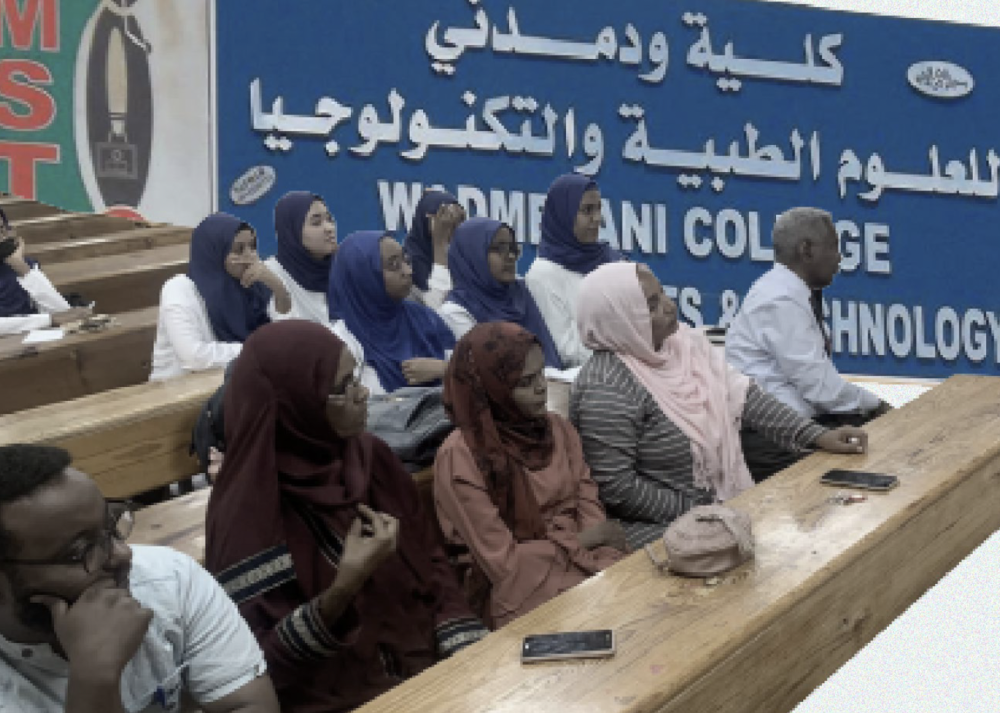
In Sudan, mixed views were shared on social media networks following the publication of a video in which the Dean of Student Affairs at the Wad Madani Faculty of Medicine in the Sudanese State of Gezira, Abdul-Rahim Al-Bilal, states that the university decided to prevent female students from wearing the abaya and explained the nature of the university dress code for young men and women. He specified that women must wear a particular uniform while at university.
“This is the uniform that should be worn inside university campus. Whoever wants to study at this faculty should abide by the dress code regulations. Abayas shall not be allowed at all, whether the girl is married or not. Whoever does not agree with what I’m saying is invited to leave this university and find another one,” the Dean said in the video.
“His words are hostile to Islam. We are in a Muslim country and banning the abaya makes no sense,” commented one girl.
Following the video and the university’s decision, several comments and posts tackling the Dean’s speech were shared on Sudanese social media networks. The most prominent hashtags used were “Dismiss the Dean of Wad Madani Faculty of Medicine” and “Women Wearing the Niqab in Wad Madani Faculty of Medicine.”
In the professional media monitoring section, the report used quantitative monitoring to analyse the number and types of publications, especially those related to the topic and published by the media platforms specified below. The report also analysed the content of these materials in terms of the approach, the reliance on relevant sources, and the published story’s level of objectivity, particularly the way it deals with the religious dimension. The report tried to understand the reason why the case was not mentioned on most of the well-known Sudanese media platforms, in comparison to the previous Sudanese case study: “Sudanese Media Coverage of Kassala Fires: Residents Accuse the Jinn.”
In addition, this report aims to examine the arguments of the various parties and shed light on the different digital narratives. The Samir Kassir Foundation (SKF) strives to be accurate and efficient in its media monitoring process. It has chosen to collaborate with Reputell, a specialised firm that has access to considerable data and uses special software to classify the data and retrieve the content deemed important for the study.
Through this process, SKF can assess whether the events related to the case study are available online or not and how this online presence shapes up. It is important to note that the purpose of this report is not to establish a comprehensive framework for the digital landscape, but rather to shed light on prominent players, platforms, and potential patterns in a way that is as close as possible to reality.